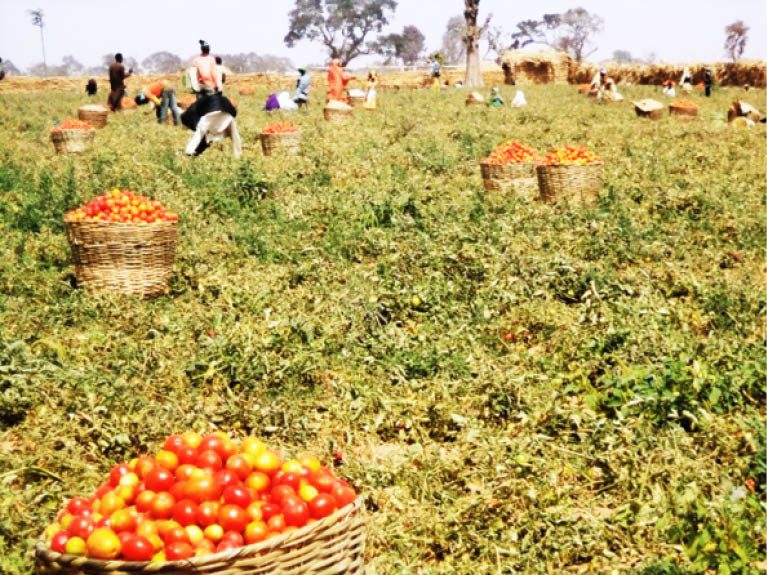Sure, you may have succeeded in growing some tomatoes in your home garden. But can you grow them in space?
Scientists have just genetically modified cherry tomatoes to make them easier to grow, and the future applications could include making them more viable for indoor farming, and even space travel, their creators say.
The scientists, working out of Cold Spring Harbor Laboratory, used a gene-editing technology called CRISPR to make changes to three key genes within the cherry tomatoes’ DNA. Two of those genes are responsible for when the plant stops growing and starts flowering and fruiting. The third controls the length of the plant’s stem.
The end result is a more compact cherry tomato plant that grows in clusters, like grapes, and also more quickly than unmodified cherry tomatoes, in only around 40 days. These changes make the tomatoes easier to grow in smaller, controlled spaces, like indoor farms, urban rooftop farms, and even spaceships. The scientists published their results in a paper in Nature Biotechnology.
- Ganduje receives Sen. Ewuga into APC fold
- NULGE issues ALGON 7-day ultimatum over unpaid arrears, others
Although the idea of space tomatoes is fun and exciting, the more immediate application of these modified crops is that they could prove to be more viable, as human-caused pollution makes farming land more limited and introduces challenges for crops.
“This demonstrates how we can produce crops in new ways, without having to tear up the land as much or add excessive fertiliser that runs off into rivers and streams,” plant biologist, Zach Lippman, one of the scientists behind the project, said in a statement, adding, “Here’s a complementary approach to help feed people locally and with a reduced carbon footprint.”
The statement went on to describe the goal of the project as “shifting some of the burden of growing the world’s crops” from overly taxed farmlands “to urban and other areas.”
SOURCE: Yahoo Tech

 Join Daily Trust WhatsApp Community For Quick Access To News and Happenings Around You.
Join Daily Trust WhatsApp Community For Quick Access To News and Happenings Around You.


